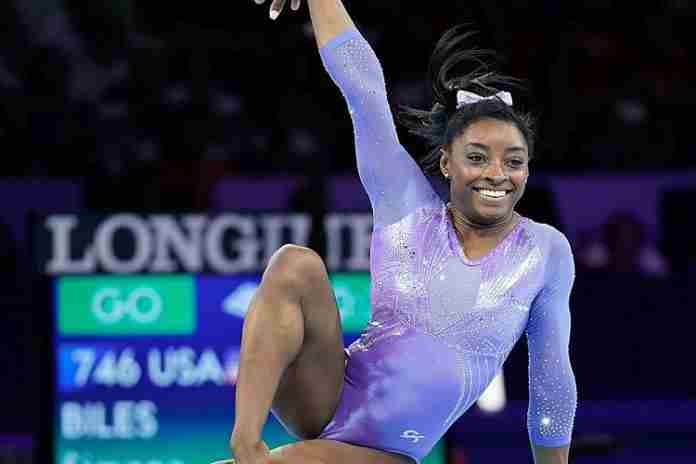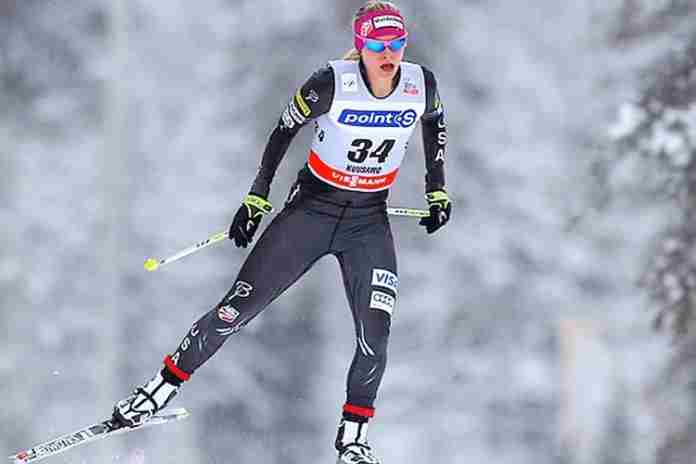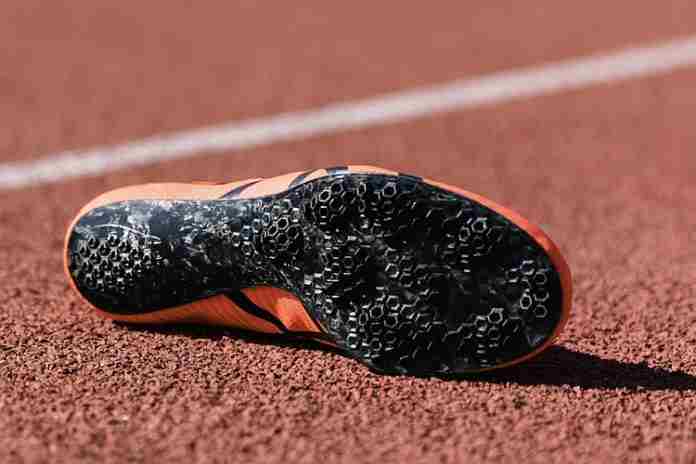(★ Friends: Happy New Year! Let’s hope 2021 is a much better year for everyone. Thank you to our 31 donors toward our bill for server and support costs; we’re at 79% of our goal. If you would like to join in, please donate here. Your enthusiasm is the motivation for this site. ★)
While the anxiety and strain of 2020 continues into the early months of 2021, this year promises to be much more exciting and we all hope it will be safer and saner. Unfortunately, many of the most difficult moments of 2020 will turn out to be the biggest stories of 2021. A preview of what’s coming, today from no. 10 to no. 6:
No. 10: The best year ever for U.S. Soccer … or the worst?
There is enthusiasm among American football – soccer – fans going into 2021, most especially for the re-emergence of the Men’s National Team, which has been irrelevant since its ignominious failure to quality for the 2018 FIFA World Cup in Russia.
But the next generation of players has shown great promise, widely noticed by the big European leagues, which have been signing U.S. players in droves. New stars like midfielders Christian Pulisic (age 22), Weston McKinnie (22), Tyler Adams (21), Giovanni Reyna (18), Yunus Musah (18) and strikers Josh Sargent (20) and Niko Gioacchini (20) are all playing with top clubs and form the nucleus for the U.S.’s future.
These players are also all age-eligible for this year’s Olympic Games in Tokyo, open to those born after 1 January 1997 can play (U-24) with the exception of three older players. That makes the Tokyo Olympic tournament a possible coming-out party for the U.S.
An American squad last played in the men’s Olympic tournament in Beijing in 2008 and was eliminated in group play after a 1-1-1 record. The U.S. missed qualifying for London and Rio and making it to Tokyo would be an important step on the way to the 2022 FIFA World Cup in Qatar. The CONCACAF Olympic Qualifying tournament will be held in Mexico from 15-28 March, with two spots available for the Tokyo Games.
The top-ranked U.S. women are favored – as usual – for the Olympic title in Tokyo, having been eliminated in the quarterfinals in 2016 by a stubborn Swedish squad on penalty kicks. After storming to the 2023 FIFA Women’s World Cup championship in France, the American women look almost unbeatable … but that was the case in 2016 as well, following their 2015 Women’s World Cup victory.
But while the U.S. women continue to steamroller their opponents on the field, the class-action suit by 28 women’s team members against the U.S. Soccer Federation continues. After a settlement was reached in December on the smaller working conditions issues, the way has been cleared for an appeal of the summary judgement decision by the U.S. District Court last May to the U.S. Court of Appeals for the Ninth Circuit. Judge R. Gary Klausner wrote:
“This approach – merely comparing what each team would have made under the other team’s [collective bargaining agreement] – in untenable in this case because it ignores the reality that the MNT and WNT bargained for different agreements which reflect different preferences, and that the WNT explicitly rejected the terms they now seek to retroactively impose on themselves.”
In the meantime, Interim U.S. Soccer Federation President Cindy Parlow Cone – herself a member of the 1999 Women’s World Cup champions – has championed a settlement with the women’s team, but must be reelected at the USSF Annual General Meeting, which will be held online from 26-27 February. She took over for Carlos Cordiero, who resigned in March 2020, but the federation’s rules require an election after a change in the presidency. Another election, for a four-year term, will be held in 2022.
Also on the table: the Women’s National Team’s collective bargaining agreement will conclude at the end of 2021. The men’s team has been operating on the agreement that expired in 2018. At some point, new agreements have to be reached.
It could the best of times, and/or the worst of times … at the same time.
No. 9: Simone Biles will cement her place as the greatest of all time, but what about the Nassar survivors?
It seems like ages ago that Simone Biles dominated the 2019 FIG World Artistic Gymnastics Championships in Stuttgart (GER), winning the All-Around, Vault, Beam and Floor golds, finishing fifth in the Uneven Bars and leading the U.S. to the team title.
But to make Olympic history, she’ll have to do even better.
The all-time record for the most medals in women’s gymnastics in a single Games is out of reach, since Soviet Maria Gorokhovskaya won seven in 1952 (2-5-0) when there were two team events. There is a total of six events now and five women have won medals in six (six-event program began in 1960):
● 1952: Vera Caslavska (CZE: 4-2-0) and Margot Korondui (HUN: 1-1-4)
● 1956: Agnes Keleti (HUN: 4-1-1) and Larisa Latynina (URS: 4-1-1)
● 1960: Larisa Latynina (URS: 3-2-1)
● 1964: Larisa Latynina (URS: 2-2-2)
● 1988: Daniela Silivas (ROM: 3-2-1)
But no one has won five golds as Biles did at the 2019 Worlds and no one has ever swept all six events on the program. Biles could do it, although she and the Uneven Bars have not always been on the best of terms.
More history: if Biles were to win six Olympic golds, she would be only the second woman to do it. East German Kristin Otto – thanks to some chemical-fueled advantages – won six in swimming in 1988 in Seoul.
While Biles chases history, the story of the Nassar survivors drones on without an ending in sight. USA Gymnastics filed for bankruptcy protection in 2019 and the case looked like it might be heading toward closure in 2020 until the Committee of Abuse Survivors – formed to negotiate on behalf of all plaintiffs – rejected the $217.125 million settlement offer proposed at the end of September.
The case is now in a closed-door settlement negotiation ordered by the U.S. Bankruptcy Court for the Southern District of Indiana, under the direction of Judge James W. Carr. The most recent tactic has seen the Survivors Committee, USA Gymnastics and the U.S. Olympic & Paralympic Committee trying to force the multiple insurers in the case to come up with a lot more money, but the insurers have shown no interest this far. No indication of a settlement has been seen and the situation could devolve into a legal free-for-all later in the year. This is far from over, unless Carr can somehow pull the Survivors and the insurers together.
No. 8: U.S. swim stars Caeleb Dressel and Katie Ledecky look for history in Tokyo
U.S. viewers will have high interest in the swimming events, with American swimmers expected to make the California Gold Rush of the 1840s and ‘50s look small. At the front of the parade will be superstars Caeleb Dressel and Katie Ledecky.
Dressel already owns two Olympic golds from Rio, from the 4×100 m Medley Relay and 4×100 m Freestyle Relay. The 6-3, former Florida star has emerged since as the top sprinter in the world and could look for history in Tokyo.
Barring injury, he will be the favorite in the 50 m Free, 100 m Free and 100 m Butterfly, and expected to swim in the 4×100 m Free, 4×100 m Medley and 4×100 m Mixed Medley relays, in which the U.S. will be favored. That’s a potential six gold medals. Only four athletes – Michael Phelps (USA/swimming, 2004/6 and 2008/8), Mark Spitz (USA/swimming: 1972/7), Kristin Otto (GDR/swimming: 1988/6) and Vitaly Scherbo (Unified Team/gymnastics: 1992/6) have done that or better.
Any more? Dressel has made no secret of his ambition to win more. His obvious chance is to help the U.S. in the 4×200 m Free relay, where the U.S. won gold in 2016 (but third at the 2019 World Championships). He could also try for the 200 m Free event, or based on his success at the 100 m Medley in the International Swimming League, perhaps the 200 m Medley?
Is the Olympic record – by Soviet Alexander Dityatin in gymnastics in 1980 and Phelps in 2004 and 2008 – of eight medals in a single Games within reach? Maybe.
On the women’s side, Ledecky will be trying to add to her career totals of five Olympic golds and one silver. Now 23, she was ill during the 2019 World Championships and “only” won three medals, taking the 800 m Free and earning silvers in the 400 m Free and 4×200 m relay. Could Otto’s mark of six (chemically-enhanced) golds from Seoul be within reach?
Ledecky will be favored in the 400-800-1,500 m Free events and if fully healthy, could well defend her 200 m Free title from Rio. Adding in a potential win with the 4×200 m Free relay, that could be five golds! But Ledecky is not a sprinter and is not a contender in other strokes. But if she looks right, could the U.S. coaches throw her into the 4×100 m Free relay as well? Maybe only in the prelims? Time will tell, but if she is fully fit – and with so much time to train in 2020 and into 2021 – Ledecky might be in a place no other female swimmer has yet approached.
No. 7: Stress test for the International Swimming League comes post-Tokyo
One of the lesser-noticed, but important, experiments in Olympic sport is the International Swimming League, which completed a Covid-shortened second season in a sequestered environment in Budapest (HUN) in November and December.
Founded and funded by Ukrainian energy billionaire Konstantin Grigorishin, the ISL has 10 teams with about 32 swimmers each, who compete in quadrangular meets in short-course (25 m) pools, leading the semi-finals and a final, to crown a team champion.
Although available on cable television in Europe and the U.S. for this season, and online for other countries, the league has drawn little attention beyond existing swimming fans. The seasonal cost was about $20 million for the first season and Managing Director and head of commercial operations Hubert Montcoudiol (FRA) and Jean-Francois Salessy (FRA), general manager of the Energy Standard Paris team, both quit in November last year, alleging missed payments, as have other suppliers to the league.
A start-up project of this type faces many challenges and late-pay, a woeful Web site and lack of interest from commercial sponsors are significant problems. Grigorishin has talked about the league being “post-modern” and looking for ways to involve fans as much as the swimmers – with betting, perhaps? – and has attacked both FINA and the Olympic Games as relics of the past.
Montcoudial, when still employed, echoed Grigorishin in knocking swimming itself. “When we talk about ISL, we don’t say it’s swimming. It’s not swimming, It is ‘sport-tainment’ and what we’re trying to do here is trigger a new kind of fanbase.”
If ISL fails as a business enterprise, even with its billionaire owner, it will signal yet again the difficulty for Olympic sports based on individual events to achieve the level of organization and appeal of team sports, or of individual sports with limited events around a common field of play, such as golf and tennis. Its 2021 plan is for a lengthy series of meets following the Tokyo Games, from fall through the spring of 2022. It’s an experiment whose outcome has wide ramifications for many sports.
The Athletics Association, whose motto is “We Are The Sport” would do well to watch ISL’s progress (or lack thereof) closely.
No. 6: Can the bad behavior federations in boxing and weightlifting survive?
The Olympic world was shattered by the devastating effects of the Covid-19 virus in 2020, but things were even worse for the International Boxing Association (AIBA) and the International Weightlifting Federation (IWF).
The International Olympic Committee removed AIBA from its role as the governing body for boxing for the 2020 Olympic Games in June 2019. With debts of nearly $10 million in mid-2020, the federation membership elected Russian Umar Kremlev – the Russian Boxing Federation Secretary-General – as President on 12 December. He told the AIBA Congress:
“Getting rid of AIBA’s debt will be the first priority. As I promised when I announced my run for the presidency, I will clear this debt in the first six months. My administration will aim to raise $50 million within two years, all of which will be used to rebuild AIBA.”
The IOC has been less impressed. In November, a statement noted:
“The IOC [Executive Board] took note that the IOC recommendation to put the AIBA reforms and their implementation first has not been respected to date. For this reason, the IOC will consider the position of AIBA only after seeing that the reforms are being adopted and implemented.
“On this occasion, the IOC will also have to take into consideration the concerns which have been raised against some of the candidates for the AIBA presidency and their potential impact on recognition.”
Consideration of AIBA’s future role in the Olympic world will be discussed post-Tokyo.
Weightlifting sank even further in 2020, although the IWF is still responsible for Olympic competitions. Last year saw allegations of financial mismanagement and doping cover-ups leveled against former, long-time President Tamas Ajan (HUN), then the interim President, American Ursula Papandrea Garza was dismissed and ultimately replaced by Britain’s Dr. Michael Irani, with a constitutional Congress and new elections slated for 24-28 March.
The IOC hammered the sport by reducing its competitor quota for Paris 2024 to just 120 athletes, compared to 196 for Tokyo and 260 for Rio in 2016. The IOC Executive Board report for November noted, “In October 2020, the IOC EB expressed its concerns about the replacement of the Acting President and stressed the critical importance of continuing reforms within the IWF.”
Weightlifting is still in the Games, but barely. Continuing doping positives undermine confidence and the IOC noted that the sport itself seems to take reform too lightly. The IWF has yet to embrace athlete participation in its governance and the IOC took pains in its November statement to point out:
“[W]ith regard to governance, it has been noted that Maxim Agapitov last weekend won the presidency of the Russian Weightlifting Federation for a second term. He will also run for the European Weightlifting Federation presidency in April 2021, with an election due to take place in Moscow.
“When Agapitov was an athlete, he tested positive in 1994 and was banned for two years.”
Not good.
The top-five stories to watch in 2021? Coming in our next Lane One!
Rich Perelman
Editor
You can receive our exclusive TSX Report by e-mail by clicking here. You can also refer a friend by clicking here, and can donate here to keep this site going.
For our 709-event International Sports Calendar for 2021 and beyond, by date and by sport, click here!

























